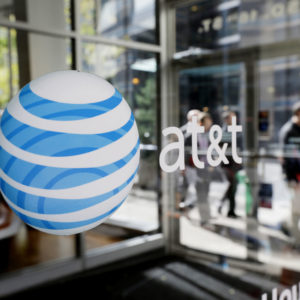A federal appeals court will rehear a landmark case that prevented the federal government’s top online privacy regulator from taking action against online giants like Verizon or Google.
The Ninth Circuit Court of Appeals for the Northern District of California said this week it’s bringing the case back before the court’s full panel of judges to decide if the Federal Trade Commission has the authority to regulate “common carriers,” a public utility designation the Federal Communications Commission reclassified broadband providers under with its net neutrality rules in 2015.
“Upon the vote of a majority of nonrecused active judges, it is ordered that this case be reheard en banc,” Chief Circuit Judge Sidney R. Thomas wrote Tuesday. “The three-judge panel disposition in this case shall not be cited as precedent by or to any court of the Ninth Circuit.”
Last August, the FTC lost a lawsuit it brought against AT&T for deceptive practices related to the carrier’s unlimited data plans. AT&T argued the FTC couldn’t take action against it because of its common carrier status.
The FTC can’t oversee common carriers according to federal law — a statute acting FTC Chairwoman Maureen Ohlhausen, many predecessors, and others have advocated repealing.
“It was put in place at a time when common carriers were pervasively regulated monopolies,” Ohlhausen said in January. “Obviously our telecommunications space is vastly different than it was when these rules were put in place.”
Before net neutrality, the FTC had jurisdiction over the internet ecosystem of internet providers like AT&T and content creators like Netflix. It used that authority to enforce transparency rules, like ensuring customers are notified when their data downloads reach a threshold at which they’ll automatically be slowed by the provider — the crux of the FTC’s case against AT&T.
“We have reviewed the court’s order, and we look forward to participating in the en banc review,” AT&T spokesman Michael Balmoris said Tuesday.
The FTC used the same authority to enforce privacy standards for how service providers and content creators can collect and use consumer data until the AT&T case. The FCC passed its own privacy rules last fall, but Congressional Republicans and the Trump administration repealed those rules in April as they imposed higher standards on internet providers than edge providers like Facebook.
Even if the FCC were to continue policing the privacy of broadband providers with the same restrictions it places on telephone companies, there are still instances where user data would fall into an enforcement gap. A court ruling from an earlier case brought by the pro-net neutrality group Public Knowledge found “the FCC’s authority ends with the act of communication — physical transmission.”
“So companies like Yahoo! and AOL, all based in the Ninth Circuit, may fall into a no man’s land of consumer protection, policed by neither agency,” Berin Szoka, president of TechFreedom, a center-right D.C-based policy think tank, said last August.
It also means the web giants like Google with a side business as a broadband provider (Google Fiber) could fall within “a privacy vacuum” between both agencies. It’s not hard to imagine the implications on web privacy if more telecommunications providers like Verizon buy more popular edge providers (and targeted ad giants) like AOL and Yahoo.
“Say for example you have a common carrier who decided to sell dietary supplements,” Ohlhausen explained in a January interview. “The FCC isn’t going to be there policing over dietary supplements, but this could divest the FTC of oversight over them as well.”
In April, Trump’s pick to head the FCC, Ajit Pai, put forth his own plan the agency will hold a preliminary vote on May 18 to put the lines back where they were before net neutrality. Pai’s plan would scale back the rules and reverse the common carrier reclassification.
While he’s expressed confidence the plan will pass the FCC finish line later this year, Pai described the court’s decision as a win for privacy enforcement.
“Today’s action by the Ninth Circuit is a big win for American consumers. Now that the court’s prior decision is no longer effective, it will be easier for the FTC to protect consumers’ online privacy,” he said Tuesday.
He added the case is further justification for his own plan to reverse reclassification of broadband as a Title II common carrier service under the Communications Act, the same authority used to break up telephone monopolies in the 1930s, which allows the FCC to impose tougher regulations including price setting.
Pai is seeking to reclassify internet service as a Title I information service regulated by the FTC, as it had been from the Clinton to the Obama administrations.
“Indeed, it moves us one step closer to having the consistent and comprehensive framework for digital privacy that the American people deserve,” Pai said.

